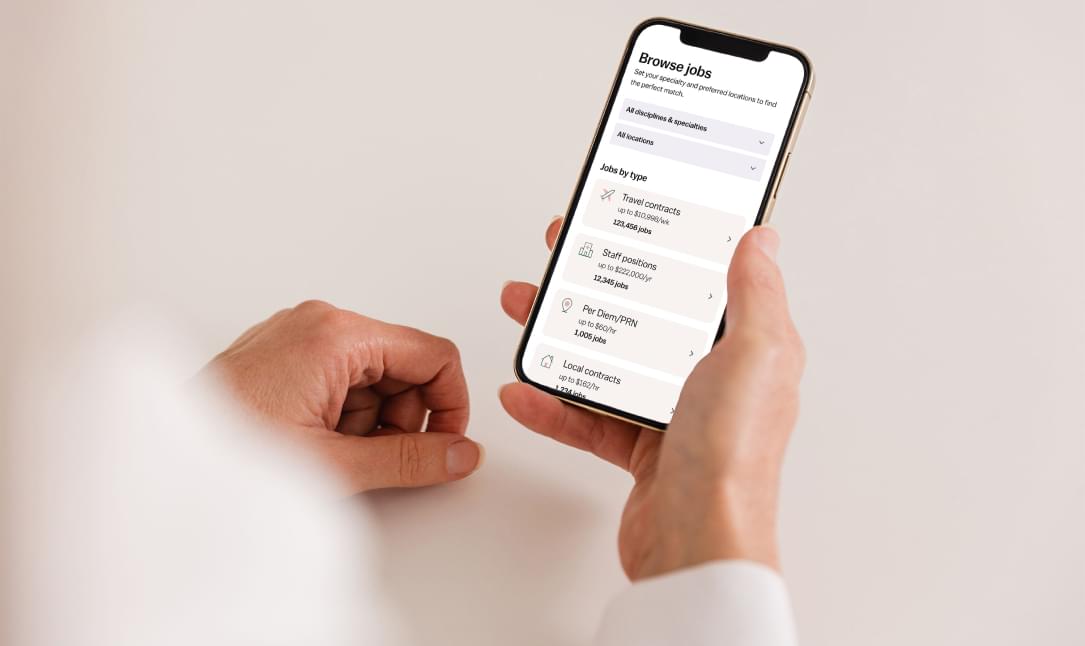Clinical Nurse Jobs
- 134 open jobs
- Jobs added hourly
Registered Nurse (RN) - Clinic
- Soffer Clinical Research Center
- Miami, FL
- 5x8 hrs, Days
- Sign-On Bonus
$30+/hour
Registered Nurse (RN) - Clinic
- West Boca Medical Center
- Boca Raton, FL
- 3x12 hrs
$31+/hour
Registered Nurse (RN) - Manager, Clinic
- Alternate Solutions Health Network LLC
- Fairfax, VA
$54-108/per visit
Registered Nurse (RN) - Clinic
- Atrium Health
- Charlotte, NC
- 4x9 hrs, Days
$32-58/hour
Registered Nurse (RN) - Clinic
- Atrium Health
- Charlotte, NC
- 3x12 hrs
$32-58/hour
Registered Nurse (RN) - Clinic
- Atrium Health
- Charlotte, NC
- 3x12 hrs, Days
$32-58/hour
Registered Nurse (RN) - Manager, Clinic
- Atrium Health
- Charlotte, NC
- 3x12 hrs
$32-58/hour
Registered Nurse (RN) - Clinic
- Atrium Health
- Charlotte, NC
- 3x12 hrs
$32-58/hour
Registered Nurse (RN) - Clinic
- Atrium Health
- Charlotte, NC
- 3x12 hrs
$32-58/hour
Registered Nurse (RN) - Home Health Manager, Clinic
- AccentCare
- Methuen, MA
- 5x8 hrs
$105K-115K/year
Registered Nurse (RN) - Home Health Manager, Clinic
- AccentCare
- Westwood, MA
- 5x8 hrs
$105K-115K/year
Registered Nurse (RN) - Home Health Manager, Clinic
- AccentCare
- Watkinsville, GA
- 5x8 hrs
$95K-110K/year
Registered Nurse (RN) - Home Health Manager, Clinic
- AccentCare
- San Antonio, TX
- 5x8 hrs
$90K-100K/year
Registered Nurse (RN) - Home Health Manager, Clinic
- AccentCare
- Hapeville, GA
- 5x8 hrs
$90K-100K/year
Registered Nurse (RN) - Home Health Manager, Clinic
- AccentCare
- Elizabethtown, PA
- 5x8 hrs
$85K-95K/year
Registered Nurse (RN) - Home Health Manager, Clinic
- AccentCare
- Temple, TX
- 5x8 hrs
$85K-95K/year
Registered Nurse (RN) - Float Clinic
- Memorial Health Meadows Hospital
- Vidalia, GA
- Nights, Flexible
$28-39/hour
Supervisor Registered Nurse (RN) - Home Health Clinic
- AccentCare
- West Covina, CA
- 5x8 hrs
$75K-80K/year
Registered Nurse (RN) - Clinic
- Advanced Care Partners
- Fort Pierce, FL
- 5x8 hrs
$32-35/hour
Registered Nurse (RN) - Clinic
- Springfield Clinic
- Springfield, IL
- 5x8 hrs
$30/hour
Registered Nurse (RN) - Clinic
- Advanced Care Partners
- Jacksonville, FL
- 5x8 hrs
$25-30/hour

Clinical Nurse Jobs Salary Insights
Average Clinical Nurse Salary
$43.08/hour
The average salary for a Clinical Nurse is $43.08 per hour. This is 4% lower than the nursing US average of $44.59.
Last updated on April 18, 2024. Based on active jobs on Vivian.com.
Clinical Nurse Jobs FAQs
What hospitals currently have the most Clinical Nurse job opportunities?
The hospitals on Vivian that currently have the most Clinical Nurse jobs are Tampa General Hospital (24 jobs), The University of Texas M. D. Anderson Cancer Center (12 jobs), and Memorial Hospital Belleville (8 jobs).
Does Vivian have any local contract Nursing jobs?
As of Saturday, April 20th 2024, Vivian has 5 listings for local contract Nursing jobs. These jobs pay $41 per hour on average, and up to $42 per hour for the top-paying job listed.
Does Vivian have any travel Nursing jobs?
As of Saturday, April 20th 2024, Vivian has 132 listings for travel Nursing jobs. These jobs pay $2,218 per hour on average, and up to $3,502 per hour for the top-paying job listed.
Where can I learn more about working as a Clinical Nurse?
Take a look at Vivian's Clinical Nurse Career Guide for more information, including required education, responsibilities, pros and cons and more.
Discover our Clinical Nurse Jobs Community Hub

How to Find Free CEUs for Nurses

Celebrate Nurses Week 2024 with Vivian Health

Top 10 Work-from-Home Nursing Jobs

Nurses Week 2024 Freebies, Deals and Discounts

Remote Nursing Jobs: Opportunities and Obstacles
